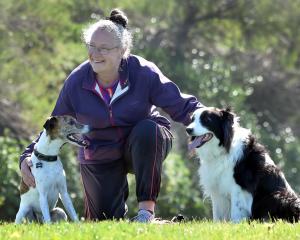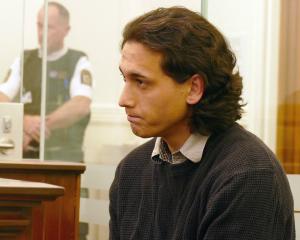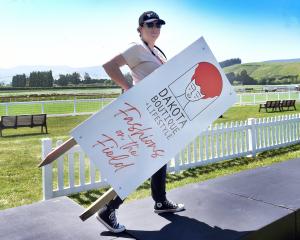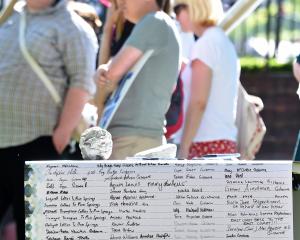The issue of freedom camping came up repeatedly at last week's Otago Peninsula Community Board meeting, at which Doc and the Dunedin City Council updated investigations into providing a campsite on the peninsula.
Three residents also raised concerns about the ongoing two-year freedom camping trial at Macandrew Bay, with two saying they felt as if they were living in a ''camping ground''.
The area at Macandrew Bay was among three across the city designated for overnight stops by freedom campers in vehicles without toilets, initially for a two-year trial, as part of an easing of freedom-camping rules across the city.
Kelli Lamare said the trial had been rolled out in a ''completely unsatisfactory'' way, with the rules on numbers routinely breached and nothing done about it.
''Campers' rights are being held higher than the residents','' Ms Lamare said.
She would be ''completely devastated'' if the situation became permanent after the trial ended next April.
Yvonne Temple said male campers urinated in the bushes where people played and a hypodermic needle had recently been found on the beach.
''It makes me sick,'' she said.
The situation would only get worse in summer, she said.
Later at the meeting, council recreation planning officer Andrew Lonie and Doc partnerships manager Mike Morrison told the board it aimed at a feasibility study evaluating the possibility of a campsite on conservation land on the peninsula.
Mr Morrison said it was yet to identify possible sites and providing for freedom campers was outside its mandate.
''It's about providing recreational opportunities for New Zealanders,'' he said.
However, board members were enthusiastic about a campsite helping solve issues with freedom campers.
After the meeting, board chairwoman Christine Garey said it had the potential to help, but that it would not be a ''magic bullet''.
In the meantime, she encouraged residents concerned about the freedom-camping situation to make submissions to the council after the trials ended on April 30 next year.











